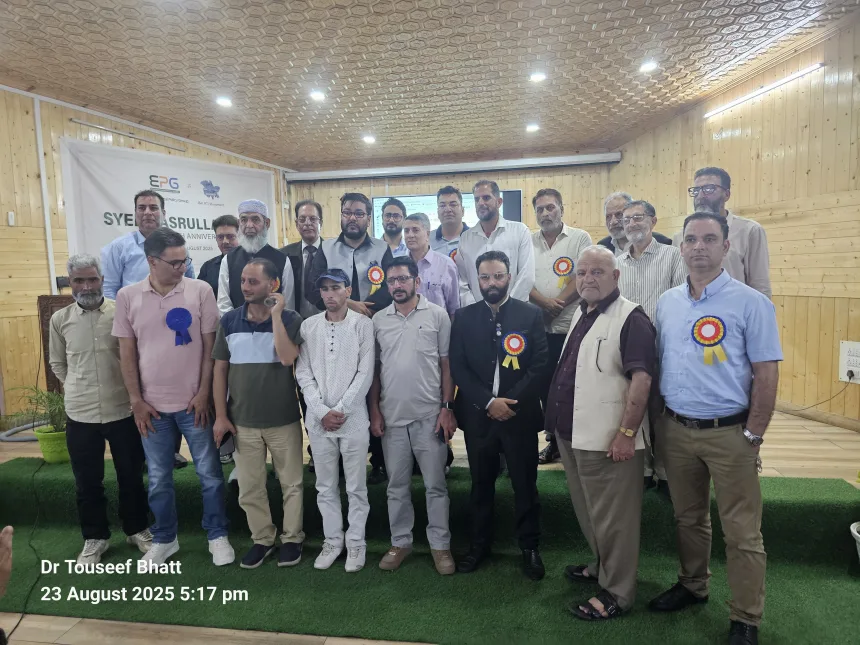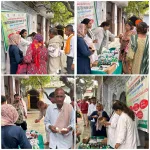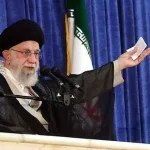Srinagar, Aug 24: The Institution of Engineers at Sonwar, Srinagar, echoed with emotion and resolve on Saturday as jurists, activists, environmentalists, poets and civil society members gathered to mark the third death anniversary of Syed Nassarullah Shah, noted jurist, RTI activist and social reformer.As per a statement issued here, the commemoration was organised jointly by the Environmental Policy Group (EPG) and the J&K RTI Movement, both of which continue to carry forward Shah’s legacy in transparency and environmental conservation. Former Chief Information Commissioner Ghulam Rasool Sufi, presiding over the event, recalled Shah as “a man ahead of his time who recognised transparency as the foundation of democracy.” EPG convenor Faiz Ahmad Bakshi described him as “our conscience-keeper… a lighthouse in times of moral and social darkness.”Dr. Raja Muzaffar Bhat, Chairman of the J&K RTI Movement, credited Shah with mentoring an entire generation of rights campaigners. A presentation by Dr. Tauseef Ahmad Bhat traced Shah’s journey from judicial service to RTI activism and environmental campaigns, while Dr. M.M. Shuja highlighted his more than 20 PILs on issues ranging from corruption to riverbed mining, calling them “instruments of social change.” Tributes also came from Advocate Rafiq Bazaz, who praised Shah’s uncompromising judicial integrity, and Khaliq ul Zaman Bhat, who recalled his tireless fight for the welfare of judicial employees. The programme blended activism with cultural expression: poets Ishrat Gul, Anjum Assad and Syed Farhat recited works dedicated to Shah, while environmentalist Haji Manzoor Ahmad Wangnoo announced a pledge to plant 1,000 trees and restore a spring in Khimber in Shah’s memory, earning a standing ovation. The gathering, attended by prominent jurists, journalists, engineers and environmentalists, reflected Shah’s wide influence across spheres of public life. In his concluding remarks, Bakshi said the anniversary was not a ritual but “a renewal of commitment to the values Nassarullah Saheb stood for.”
Search
Archives
- August 2025
- July 2025
- June 2025
- May 2025
- April 2025
- March 2025
- February 2025
- January 2025
- December 2024
- November 2024
- October 2024
- September 2024
- August 2024
- July 2024
- June 2024
- May 2024
- April 2024
- March 2024
- February 2024
- January 2024
- December 2023
- November 2023
- October 2023
- September 2023
- August 2023
- July 2023
- June 2023
- May 2023
- April 2023
- March 2023
- February 2023
- January 2023
- December 2022
- November 2022
- October 2022
- September 2022
- August 2022
- July 2022
- June 2022
- May 2022
© 2022 Foxiz News Network. Ruby Design Company. All Rights Reserved.






